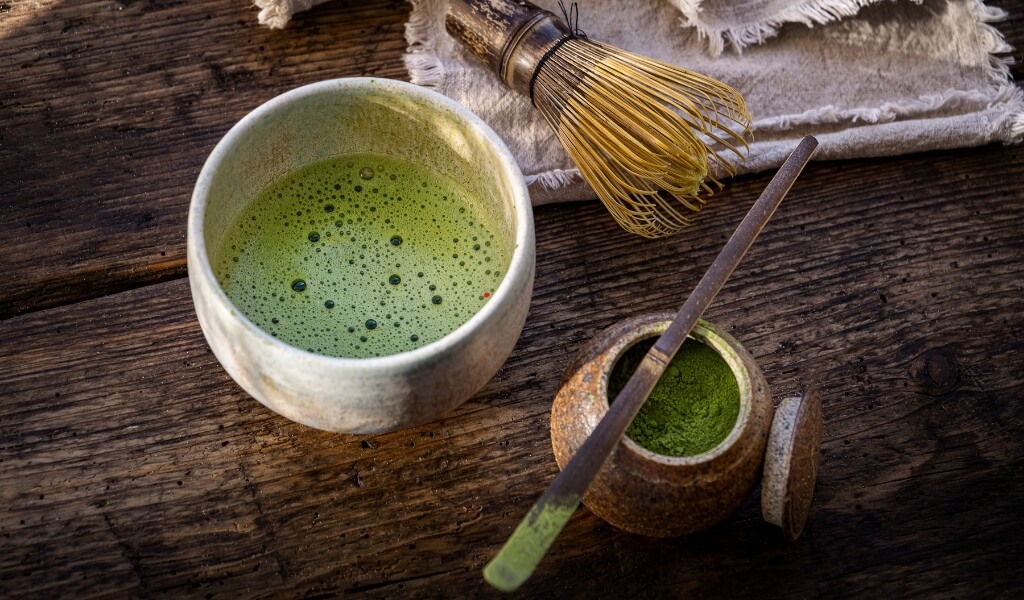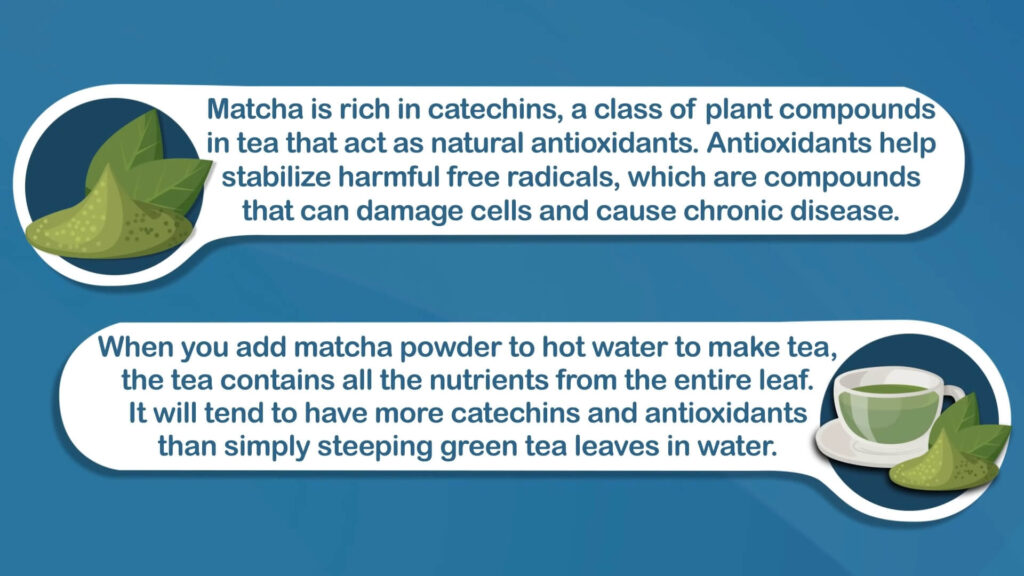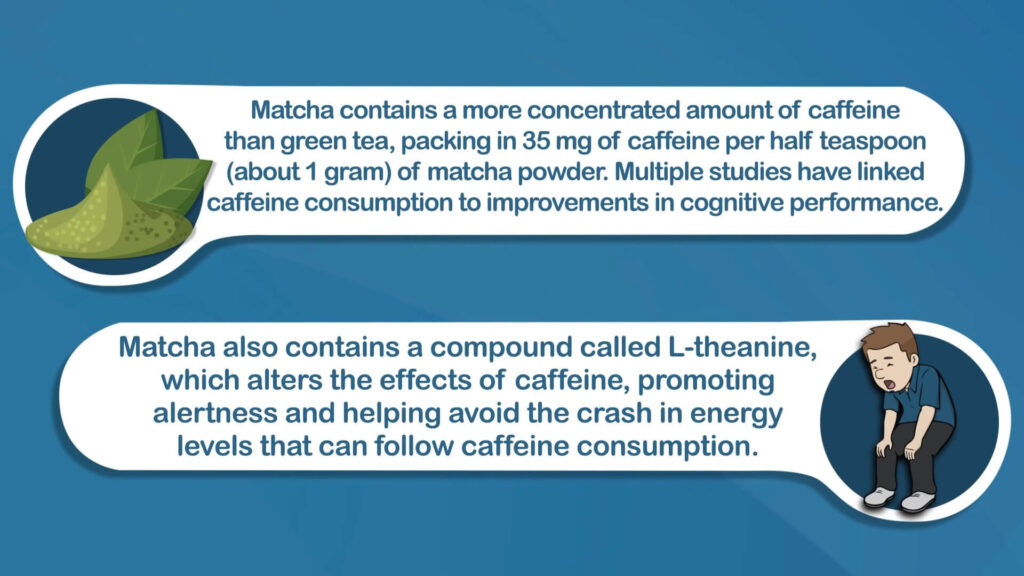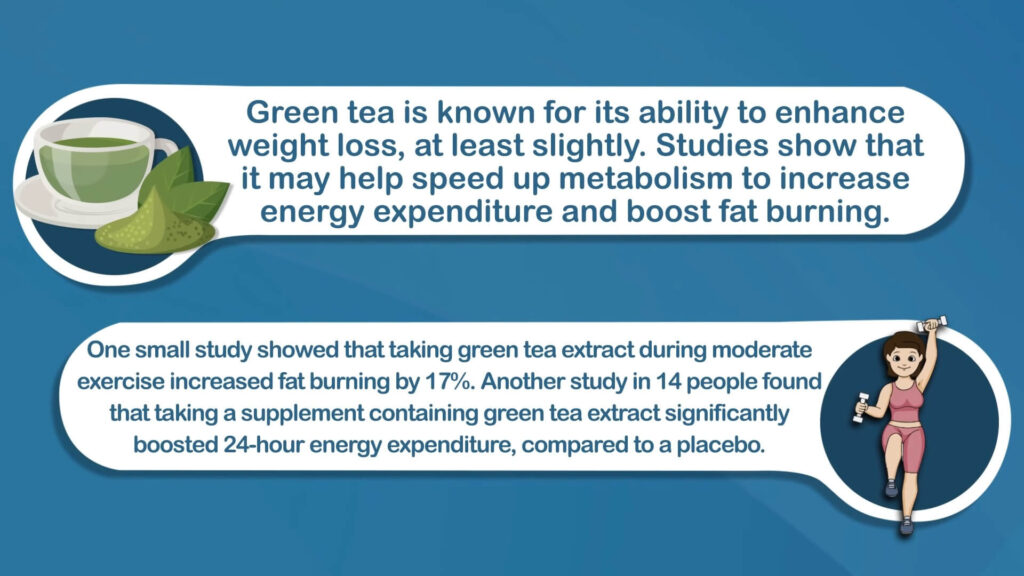From the first time I sipped matcha tea, I was intrigued by its vibrant color and unique flavor.
But it was learning about the numerous Health benefits of Matcha tea that truly captivated me.
Together, we’ll discover its rich history, nutritional profile, and, most importantly, the health benefits that could make this distinctive brew a valuable addition to your daily routine.
Nutritional of Matcha tea
Sourced from the Camellia sinensis plant, matcha tea undergoes a special cultivation process where it’s shade-grown for about 20 to 30 days before harvest. This increases its amino acid production and gives it a darker green hue. Once harvested, its stems and leaves are ground into the fine powder we know as matcha recipe.
Unique Nutrients in Matcha Tea
Let’s get into the nitty-gritty of what makes matcha so special, nutritionally speaking. Each teaspoon of matcha powder contains roughly 10 calories, 1 gram of carbohydrates (which come from fiber), and zero fat or protein. And while matcha may not be a significant source of vitamins and minerals, it truly shines in its antioxidant content, notably higher than that of other teas.
Research suggests these antioxidants may boost brain function, help prevent cancer, promote heart health, protect liver function, and even improve skin health. Pretty impressive for a humble tea leaf, right?
17 Main Health Benefits of Matcha tea
Let’s delve into the science-backed matcha health benefits, highlighting 18 remarkable advantages of this powerful brew.
| Benefits | Description |
| High in Antioxidants |
– Packed with powerful antioxidants. Reduces cell damage and chronic diseases
|
| Liver Protection |
– May prevent liver damage and disease. Supported by animal and human studies
|
| Brain Function Boost |
– Enhances attention, memory, and reaction time. Contains caffeine and stress-relieving L-theanine
|
| Potential Cancer Prevention | – Inhibits cancer cell growth. Rich in EGCG with anti-cancer properties |
| Heart Health Support |
– Reduces cholesterol, triglycerides, and heart disease risk. Linked to heart health
|
| Weight Management | – Boosts metabolism, fat burning, and weight loss efforts |
| Easy Preparation |
– Simple steps to make traditional matcha tea. Versatile for creative recipes
|
| Skin Benefits | – Combats aging, acne, and redness. Enhances complexion and elasticity |
| Stress Relief | – Promotes relaxation and tranquility. Rich in L-theanine |
| Bone Health | – Improves bone mineral density. Rich in beneficial compounds |
| Blood Sugar Management | – Enhances insulin responsiveness. Supports overall health |
| Detoxification | – Aids detoxification with chlorophyll-rich content |
| Reduce Redness | – Anti-inflammatory properties reduce redness in skin conditions |
| Improve Complexion | – Exfoliates, revitalizes, and enhances skin complexion |
| Youthful Appearance | – Protects against aging, UV damage, and promotes elasticity |
| Balanced Skin | – Reduces oiliness, shrinks pores, and maintains natural radiance |
| Suitable for All Skin Types | – Pure and natural alternative for various skin types |
| Vitamin & Mineral Content |
– Rich in essential vitamins (A, B1, B2, B3, C, F) and minerals (Fluorine, Flavonoids)
|
1. High in antioxidants
“Packed with a powerful dose of antioxidants, matcha works to reduce cell damage and ward off chronic diseases – truly a superfood in a teacup!”
“137 TIMES MOR ANTIOXIDANTS THAN WHAT YOU WOULD FIND IN OTHER TYPES OF GREEN”
Matcha is like a superhero regarding its nutrient content, boasting a high level of catechins. Catechins are plant compounds found in tea that work as natural antioxidants.
Antioxidants are the body’s defenders, fighting off destructive free radicals. Free radicals may sound like a band name, but they’re far from entertaining. They’re substances that can damage our cells and contribute to long-term illnesses.
What’s special about matcha is that when you blend the powder with hot water to make tea, you absorb all the nutrients from the entire leaf. It’s like turbocharging your green tea consumption, delivering more catechins and antioxidants than steeping green tea leaves in water.
Here’s a fun fact: according to some estimates, matcha can contain up to 137 times more of certain catechins than other green teas. Can you believe that?
In one study, mice were given matcha supplements, and the results were impressive! They experienced reduced damage from free radicals and had enhanced antioxidant activity.
So, by including matcha in your diet, you’re boosting your antioxidant intake, which can help protect your cells from damage. It may even reduce your risk of several chronic diseases. Now that’s something to toast with a cup of matcha too!
2. May help protect the liver
“While promising evidence suggests that matcha could help stave off liver damage and lower the risk of liver disease, we must remember that additional research is required to understand its impact on the broader human population fully.”
Our liver is a real unsung hero in our bodies, quietly flushing out toxins, helping metabolize drugs, and processing nutrients. I’m always seeking ways to support this essential organ; matcha is a good ally.
Some research suggests that matcha could help safeguard the health of our liver. One study involving diabetic rats showed that giving them matcha for 16 weeks helped prevent kidney and liver damage. Isn’t that amazing?
In another study, 80 people with nonalcoholic fatty liver disease were divided into two groups. One group was given a placebo and another 500 mg of green tea extract daily for 90 days. What’s remarkable is that after 12 weeks, the green tea extract significantly reduced liver enzyme levels. You see, elevated levels of these enzymes can point to liver damage.
Another analysis of 15 studies suggested that drinking green tea was associated with a lower risk of liver disease. But remember, correlation doesn’t always mean causation and other factors could be at play.
Now, the research has primarily examined the effects of green tea extract in animals, and we need more studies to explore the effects of matcha on the general human population.
3. Boosts brain function
“Matcha has been celebrated for its ability to sharpen attention, enhance memory, and quicken reaction time. But there’s more – it’s packed with caffeine and L-theanine, both of which can substantially boost various aspects of our brain function.”
Research suggests that matcha slim is a brain booster, with several components potentially enhancing our cognitive functions.
Let me paint a picture for you – in one study, 23 people were given tasks designed to measure brain performance. Some participants had matcha tea or a matcha-containing bar, while others consumed a placebo tea or bar.
The results? Those who had their matcha fix improved attention, reaction time, and memory compared to the placebo group.
Another study with older participants showed that consuming 2 grams of green tea powder daily for 2 months helped improve their brain function.
So, does matcha have caffeine?
One often-touted advantage of matcha is its ability to deliver caffeine without the coffee-induced jitters. This could be attributed to the unique way matcha incorporates the entire tea leaf, which may slow caffeine absorption. However, there’s also evidence pointing to the involvement of another element.
But here’s the cool part – Ceremonial matcha also contains a compound called L-theanine, which changes the effects of caffeine. It promotes alertness without that energy crash you might have experienced after your caffeine fix wears off.
L-theanine even helps us chill out, as it’s been shown to increase alpha wave activity in the brain, which can induce relaxation and reduce stress levels.
So, sipping on matcha might be like giving your brain a gentle, nurturing hug!
Read More: Discover Sencha Tea Benefits: Based on 30 real-life studies
4. May help prevent cancer
“Promising research suggests that matcha’s compounds could inhibit cancer cell growth in both test tubes and animal studies.”
Matcha is like a little treasure chest filled with health-boosting compounds. Some compounds have even been linked to cancer prevention in test tube and animal studies.
Let me share an example – in one study, the best matcha tea extract decreased tumor size and slowed the growth of breast cancer cells in rats.
Now, matcha has a secret weapon – it’s particularly rich in a catechin called epigallocatechin-3-gallate, or EGCG for short, which has been shown to possess potent anti-cancer properties.
One test-tube study found that EGCG in matcha was a formidable foe to prostate cancer cells. Other test tube studies have suggested that EGCG could also be effective against skin, lung, and liver cancer.
But before we get too excited, it’s important to remember that these were test tube and animal studies focused on specific compounds in matcha. So, what does matcha taste like?
We still need more research to see how these results could apply. While we wait for more evidence, let’s just enjoy our matcha for its delicious taste!
Read More:
5. May promote heart health
“Evidence suggests that green tea and matcha can potentially reduce various risk factors associated with heart disease.”
Heart disease is the leading global cause of mortality, responsible for approximately one-third of all deaths in individuals over 35.
But here’s the good news – studies have suggested that sipping green tea, which shares a similar nutrient profile with matcha, could protect against heart disease.
Green tea has shown the ability to lower levels of total and LDL cholesterol (the “bad” kind), along with reducing triglycerides.
It even aids in preventing LDL cholesterol oxidation, which is essential for warding off heart disease.
Furthermore, observational studies have shown that drinking green tea lowers the chance of developing heart disease and stroke.
When combined with a well-rounded diet and a healthy lifestyle, incorporating matcha into your routine could play a role in maintaining a Japanese tea health heart and shielding against disease.
6. Helps you lose weight
“Emerging studies indicate that green tea extract has the potential to boost metabolism and enhance fat burning, offering potential support for weight loss efforts.”
Next time you check out the ingredients list of a weight loss supplement, keep an eye out for the superstar ingredient: green tea extract.
Green tea has gained quite a reputation for its matcha powder benefits. Research indicates it can rev up your metabolism, increase energy expenditure, and heighten fat burning.
In one small study, participants who took green tea extract during moderate exercise experienced a 17% increase in fat burning.
A supplement containing green tea extract significantly increased 24-hour energy expenditure in comparison to a placebo, according to a second research including 14 people.
And now for the interesting part: an analysis of 11 trials found that green tea helped people maintain weight while reducing body weight.
Most of these studies focused on green tea extract, but since matcha comes from the same plant, it’s safe to assume it would have similar effects. So, matcha might be your new best friend if you want a natural boost on your weight loss journey.
7. Matcha tea is very easy to prepare
From traditional preparation to creative recipes, matcha offers a world of possibilities for your enjoyment.
Incorporating the myriad health benefits of matcha into your routine is as simple as it is delightful, thanks to its delicious taste.
To make a traditional cup of matcha tea, begin by sifting 1–2 teaspoons (2–4 grams) of matcha powder into your cup.
Add 2 ounces (59 ml) of hot water and whisk the mixture together using a bamboo whisk. Feel free to adjust the matcha powder-to-water ratio based on your desired consistency.
Reduce the powder to half a teaspoon (1 gram) for a lighter tea and mix it with 3–4 ounces (89–118 ml) of hot water.
On the other hand, if you like a stronger coffee, mix just 1 ounce (30 ml) of water with 2 teaspoons (4 grams) of powder.
There are countless opportunities to explore for people with a sense of adventure. Make matcha lattes, puddings, or protein smoothies to add the nutritional qualities of matcha to your favorite dishes.
Remember, moderation is key. While matcha is packed with the benefits of matcha green tea, it’s important not to overindulge.
Some individuals who excessively consumed green tea daily reported liver issues. Additionally, matcha may expose you to contaminants such as pesticides, chemicals, or traces of arsenic found in the tea plant’s soil.
Matcha powder consumption should be approached with care as the recommended amount can vary from person to person. Try to limit yourself to 1-2 cups per day and choose certified organic options to maximize the benefits of matcha while reducing the risk of any possible adverse effects.
8. Your Skin
Matcha, the superhero for your skin, offers many benefits and can be incorporated into various beauty and skincare practices. Rich in catechins, green tea works wonders in combating free radicals, thus slowing down signs of aging.
Applying matcha directly to the skin, such as a mask, is one of the most effective ways to tackle acne and alleviate rosacea symptoms.
9. Reduce Redness
Matcha powder efficiently lessens redness brought on by chronic skin diseases including rosacea and acne thanks to its powerful anti-inflammatory effects, notably EGCg. It soothes discomfort and improves complexion, making you seem confident and beautiful. It is suitable for all skin types.
10. Improve Your Complexion
Be prepared to be astounded by matcha’s remarkable benefits on your skin. In addition to reducing inflammation, it also revitalizes the skin by removing dead cells and providing a younger, fresher appearance. Thanks to matcha’s miraculous skin-improving properties, prepare to embrace a better version of yourself.
11. “You Look Great!”
The advantages of matcha make aging’s telltale signals disappear. Matcha keeps your skin robust and young by protecting it from UV rays, enhancing suppleness, and promoting elastin creation. It protects against wrinkles, age spots, dryness, and UV damage.
12. Your Face Is Not An Oil Refinery
Bid farewell to excessive oiliness and the blemishes it often brings. Matcha addresses oily skin concerns by shrinking pores, reducing oil production associated with acne, and effectively removing excess oil. It balances your skin, preventing breakouts and restoring its natural radiance.
13. All Skin Types, Welcome
Unlike chemical-laden skincare products, matcha masks are a pure and natural alternative, making them suitable for all skin types. Whether you have youthful skin needing gentle care or mature skin craving a rejuvenating boost, matcha is the hero that answers the call. No capes are required!
Please note that the information provided is based on general knowledge of matcha’s skincare benefits and may not be specific to individual experiences.
It’s always best to consult a dermatologist or skincare professional for personalized skincare advice.
14. May have a stress-relieving effect
The possible advantages of consuming matcha for the neurological system are due to the amino acid L-theanine present in matcha. It helps with relaxation by increasing levels of the tranquillizing neurotransmitter GABA, which encourages a peaceful state of mind.
However, the quality of your matcha experience depends on its veracity and the essential step of shading the tea plants while they are being grown.
This shading technique enhances the levels of L-theanine, making Traditional Japanese Matcha a rich source of this amino acid.
It also results in lower levels of caffeine and catechins. Unfortunately, commercially processed matcha often fails to strike this optimal balance, missing out on these stress-relieving advantages.
15. May be good for bone health
Research indicates that opting for tea, particularly green tea varieties, may contribute to stronger bones and a decreased risk of fractures. Green tea, including matcha, is exceptional among various teas because it significantly improves bone density. This is thanks to its high levels of beneficial plant compounds, reduced oxidation, and increased antioxidant power.
16. May support blood sugar management
Research suggests that green tea, including matcha, has the potential to enhance our responsiveness to insulin, the hormone responsible for regulating blood sugar levels.
This means that there are many benefits of matcha in our routine that positively impacts our ability to control blood sugar, offering valuable benefits for overall health and well-being. So, why drink green tea for better blood sugar control?
17. DETOX
Regarding matcha, the leaves are given some shade, which, believe it or not, has a special effect. The shade prompts the plants to amp up their chlorophyll production, giving the leaves a vibrant green hue that we all know and love.
Now, let me share something fascinating about green tea. It possesses remarkable detoxifying properties that have left me in awe. It can even naturally eliminate heavy metal ions from solutions in certain situations. It’s like witnessing a little magic happen right before my eyes!
These intriguing details about matcha and green tea have made my exploration of their world even more exciting. It’s incredible how nature has surprised us with its wonders.
18. Vitamins & Minerals
Green, black, and white teas are rich in polyphenols, powerful plant-based compounds with impressive anti-inflammatory properties. These polyphenols, also known as flavonoids, have demonstrated remarkable abilities in reducing inflammation and protecting cartilage and bone density.
Let’s explore some of the essential vitamins found in tea that contribute to our overall health:
Vitamin A (Carotene)
Vitamin A, also known as carotene, is vital for promoting better vision and acting as an antioxidant to combat free radicals in the body. The most common form of carotene found in tea is B-carotene.
Its conversion to vitamin A in our bodies makes it an important nutrient for maintaining visual health and supporting our immune system.
Vitamin B1 (Thiamine)
Moving on to Vitamin B1, or thiamine, it’s an essential nutrient our bodies cannot produce independently. Thiamine is necessary for proper sugar, amino acid, and lipid metabolism. It holds particular significance for those who rely on rice as their primary source of nutrition, making it essential for their well-being.
Vitamin B2 (Riboflavin)
Vitamin B2, also known as riboflavin, helps cells utilize oxygen efficiently. It is crucial in normal cell growth, including red blood cell formation and antibody production. Additionally, riboflavin contributes to the health of our skin, hair, nails, and tissues, helping them utilize oxygen effectively.
Vitamin B3 (Niacin)
Vitamin B3, or niacin, aids in the breakdown of carbohydrates, fats, and proteins to release energy. It serves multiple functions by supporting our skin, digestive, and nervous systems.
Research has demonstrated that niacin can increase levels of beneficial HDL cholesterol, lower triglycerides, and reduce the hardening of arteries, thus reducing the risk of heart-related issues.
Vitamin C
Vitamin C, or ascorbic acid, fights body free radicals as an antioxidant. It’s crucial for tissue repair and neurotransmitter production and boosts the immune system against viruses and bacteria. However, fermented teas like black and oolong have less Vitamin C due to the fermentation process, which reduces its content.
VITAMIN F (FLUORINE)
Fluorine, abundant in the Camellia family of plants, including tea, is particularly beneficial for dental health. It forms a protective antioxidant coating on the tooth surface, aiding in the fight against cavities.
VITAMIN P (FLAVONOIDS)
Lastly, let’s talk about Vitamin P, also known as flavonoids. Tea, especially green, black, and white teas, is rich in these polyphenolic compounds, which exhibit robust anti-inflammatory effects. Research has highlighted their potential benefits for arthritis patients, showcasing their ability to reduce inflammation, preserve cartilage, and maintain bone health.
Side Effects of Matcha Tea
So, the question is, is matcha good for you all the time? Did you know that each serving of matcha contains a decent amount of caffeine, between 19 and 44 milligrams per gram, depending on how the leaves are processed and their quality? But remembering that too much of a good thing can sometimes lead to not-so-great side effects is worth remembering. The U.S. Food and Drug Administration advises that consuming more than 400 milligrams of caffeine every day might cause:
- Trouble sleeping
- Feeling jittery
- Feeling anxious
- A racing heart
- Tummy trouble
- Feelings of nausea
- Headaches
A general feeling of unhappiness, also known as dysphoria
Also, the National Institute of Health mentions a few potential side effects of green tea extracts, including constipation, tummy discomfort, nausea, elevated blood pressure, and liver damage. However, remember that these aren’t specific to matcha powders. So, enjoy your matcha, but, like all things, in moderation.
The bottom line
In short, why is matcha good for you? The benefits of matcha tea are truly impressive. From boosting brain function to promoting heart health, it’s a drink I recommend to anyone wanting to enhance their well-being. Why not give it a try? Make a cup of matcha part of your daily routine and experience the transformative effects yourself. Let’s embark on this healthful journey together!
Thanks for spiriteadrinks
FAQs
Does matcha make you poop?
Matcha can stimulate digestion and promote bowel movements due to its dietary fiber content. However, everyone’s body reacts differently, so it’s not a guaranteed laxative.
What happens if I drink matcha everyday?
Drinking matcha daily can have numerous benefits, such as boosting metabolism and providing a source of antioxidants. However, excessive intake might lead to side effects like insomnia or an upset stomach.
How does matcha tea help with weight loss?
Matcha tea is known to boost metabolism, aiding in weight loss. It helps to increase energy expenditure and fat oxidation, which assist in weight management. Additionally, it can help keep you feeling satiated, reducing the tendency for overeating.
Is matcha tea good for brain function?
Yes, matcha tea can improve brain function. It contains a compound called L-theanine, which increases alpha wave activity in the brain, enhancing focus, memory, and learning capabilities and calming.
How does matcha tea contribute to heart health?
Matcha tea benefits heart health as it’s rich in catechins, an antioxidant known to protect against heart disease. It also aids in maintaining healthy blood pressure and cholesterol levels, contributing to cardiovascular health.
How does matcha tea compare to traditional green tea?
Compared to traditional green tea, there are much more benefits of matcha. It contains more antioxidants and nutrients due to its unique growing and processing methods. This makes matcha a more potent source of health benefits.
What is the caffeine content in matcha tea?
Matcha tea contains moderate amounts of caffeine, roughly 35mg per half-teaspoon serving. This is slightly higher than green tea but lower than coffee, providing a balanced energy boost without the jitters.
Where can I buy high-quality matcha tea?
High-quality matcha tea can be purchased from reputable online tea sellers, specialty tea shops, or health food stores. Look for pure, organic matcha sourced from Japan for the best quality.
Does matcha tea have more antioxidants than other teas?
Yes, matcha tea has a higher antioxidant content than most other teas. This is because you’re consuming the whole tea leaf, maximizing the intake of beneficial compounds.
Can I add matcha tea to my daily diet?
Incorporating matcha tea into your daily diet can greatly boost your nutrient intake. It can be consumed in traditional tea or added to foods like smoothies or oatmeal.
Is there a specific time of day to drink matcha tea?
You can drink matcha tea any time of day, but due to its caffeine content, it’s often consumed in the morning or early afternoon. Its combination of caffeine and L-theanine provides a gentle, sustained energy boost without a crash.
What is the history of matcha tea?
Matcha tea originated in China during the Tang Dynasty, but it was in Japan that it gained prominence. It has been used in Japanese tea ceremonies for centuries and is appreciated for its deep cultural significance and health benefits.
How does the L-theanine in matcha tea affect the body?
L-theanine in matcha tea promotes relaxation without drowsiness. It enhances brain function, improves mood, and reduces stress, creating calm alertness and aiding in concentration and focus.
What’s the difference between ceremonial and culinary grade matcha?
Ceremonial grade matcha is the highest quality used for traditional tea ceremonies, offering a smoother and more delicate taste. Culinary grade matcha has a stronger, more robust flavor for cooking and baking.
Can I consume matcha tea if I’m sensitive to caffeine?
While matcha tea has less caffeine than coffee, sensitivity varies between individuals. But what is in matcha tea? If you’re sensitive to caffeine, start with small amounts of matcha and observe your reaction.
Can I drink matcha tea while pregnant?
Pregnant women can enjoy matcha tea in moderation due to its caffeine content. It’s advised to consult with a healthcare professional to determine the appropriate amount.
What is the cultural significance of matcha in Japan?
Matcha holds an important place in Japanese culture. It’s used in the traditional tea ceremony, ‘chanoyu’, representing harmony, respect, purity, and tranquility. It’s a beverage and part of a mindful, meditative practice.
I’m Shanna, creator of Spiritea Drinks. I’m all about teaching people to grow their own food, tea, cook what they harvest, and eat with the seasons.







